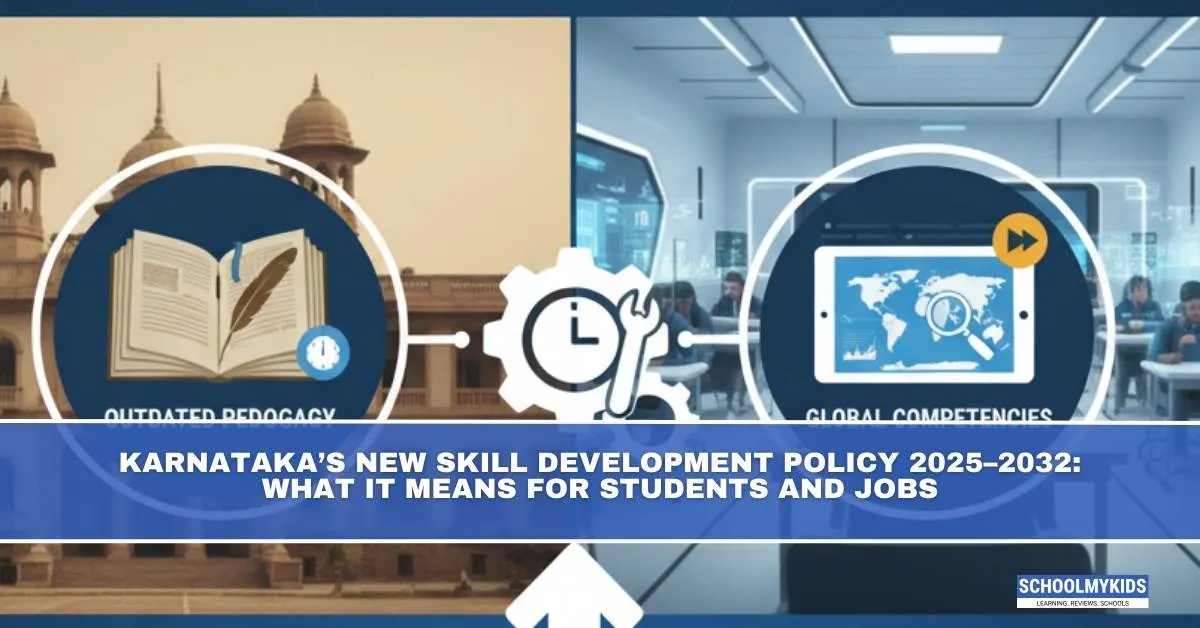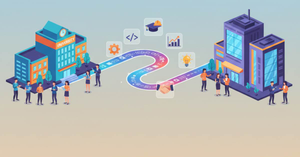India’s demographic dividend is both a blessing and a challenge. By 2030, the country will have the largest youth population in the world. The real question is: will they be employable? Karnataka, one of India’s leading states for innovation, IT, and education, has stepped forward with its Skill Development Policy 2025–2032. This long-term roadmap aims to bridge the widening gap between academic education and the demands of a rapidly evolving job market.
Let’s break down what this policy means, especially for students and future jobs.
Why a New Skill Development Policy?
The context is clear: industries are transforming at lightning speed. AI is automating repetitive roles. Green jobs are emerging in renewable energy, sustainable agriculture, and environmental management. Startups and gig economies are becoming mainstream career pathways. The older model—where students studied a set curriculum and expected jobs to follow—no longer works.
Karnataka’s policy recognizes these challenges and sets a seven-year framework to prepare its youth for the next wave of opportunities.
Key Highlights of the Policy
- AI and Emerging Tech Training: Dedicated programs in artificial intelligence, robotics, blockchain, and cybersecurity will ensure students aren’t just job seekers but job creators. Training centers and hubs will be set up across districts, not just in Bengaluru.
- Green Jobs and Sustainability Skills: With climate change at the center of global policies, the state will offer skill certifications in solar energy, waste management, sustainable construction, and organic farming. Students in rural areas benefit most from these programs.
- Entrepreneurship and Startups: The policy links with Karnataka’s startup ecosystem, offering incubation, seed funding access, and entrepreneurial skill-building to students. The idea is to train not just employees, but future employers.
- Industry Partnerships: Collaboration with companies ensures training is not theoretical. Apprenticeships, internships, and live projects will be mandated so students can “learn by doing.”
- Inclusive Approach: Special focus on rural youth, women, and marginalized groups. Mobile training units and digital platforms will reach villages where formal institutions don’t exist.
- Global Mobility: The state aims to train workers for overseas employment, with certifications recognized by international standards. This opens opportunities beyond India.
What This Means for Students
- Job Readiness: Instead of waiting until graduation, students will gain industry skills alongside their studies. Imagine learning coding in class while doing a paid AI internship in your third year.
- Access to Resources: Rural students will no longer be left behind. Digital labs and mobile centers will bring the same opportunities to tier-2 and tier-3 towns.
- Career Flexibility: Skills in green energy, digital marketing, or logistics mean students can enter multiple fields rather than being locked into one career path.
- Global Exposure: Certification aligned with international standards means easier access to overseas jobs.
What This Means for Employers
- Skilled Workforce: Companies no longer need to spend months retraining fresh graduates.
- Regional Talent Hubs: Talent won’t be concentrated only in Bengaluru; other districts will develop skilled professionals.
- Startup Ecosystem Growth: With more young entrepreneurs, Karnataka’s reputation as a startup hub will only strengthen.
Challenges Ahead
No policy is perfect. Implementing this vision will face hurdles:
- Teacher Training: Without trainers skilled in AI, green tech, or entrepreneurship, the policy risks being just paperwork.
- Digital Divide: Students without laptops or reliable internet could miss out unless offline solutions are built in.
- Execution at Scale: Scaling from Bengaluru to rural Karnataka requires strong monitoring and funding.
The Long-Term Vision
If successful, the Skill Development Policy could set Karnataka apart as India’s skill capital, much like it already is for IT. For students, it’s a chance to break free from rote-learning models and step into the workforce confident and job-ready. For employers, it ensures the talent pipeline remains strong, adaptive, and innovative.
Most importantly, it signals a shift: education is no longer about degrees alone—it’s about skills that match the future.
Conclusion
The Karnataka Skill Development Policy 2025–2032 is not just another government announcement—it’s a blueprint for the future of work. By focusing on AI, green jobs, entrepreneurship, and inclusivity, the state is preparing its youth for careers that don’t even exist yet. For students, it’s an invitation to learn smarter, adapt faster, and think bigger. For the job market, it’s a promise of a workforce ready to meet the challenges of tomorrow.








Be the first one to comment on this story.